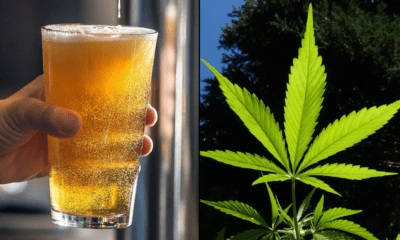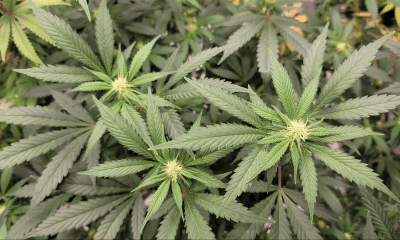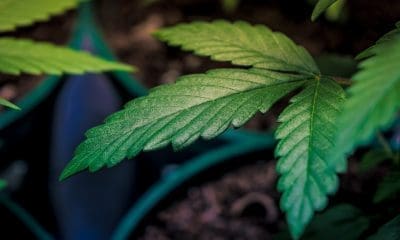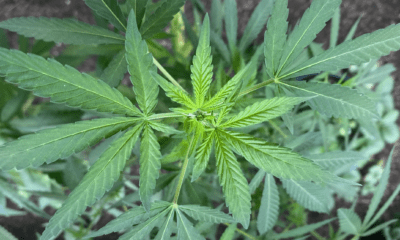Politics
South Dakota Attorney General Releases Final Ballot Explanation For Marijuana Legalization Initiative
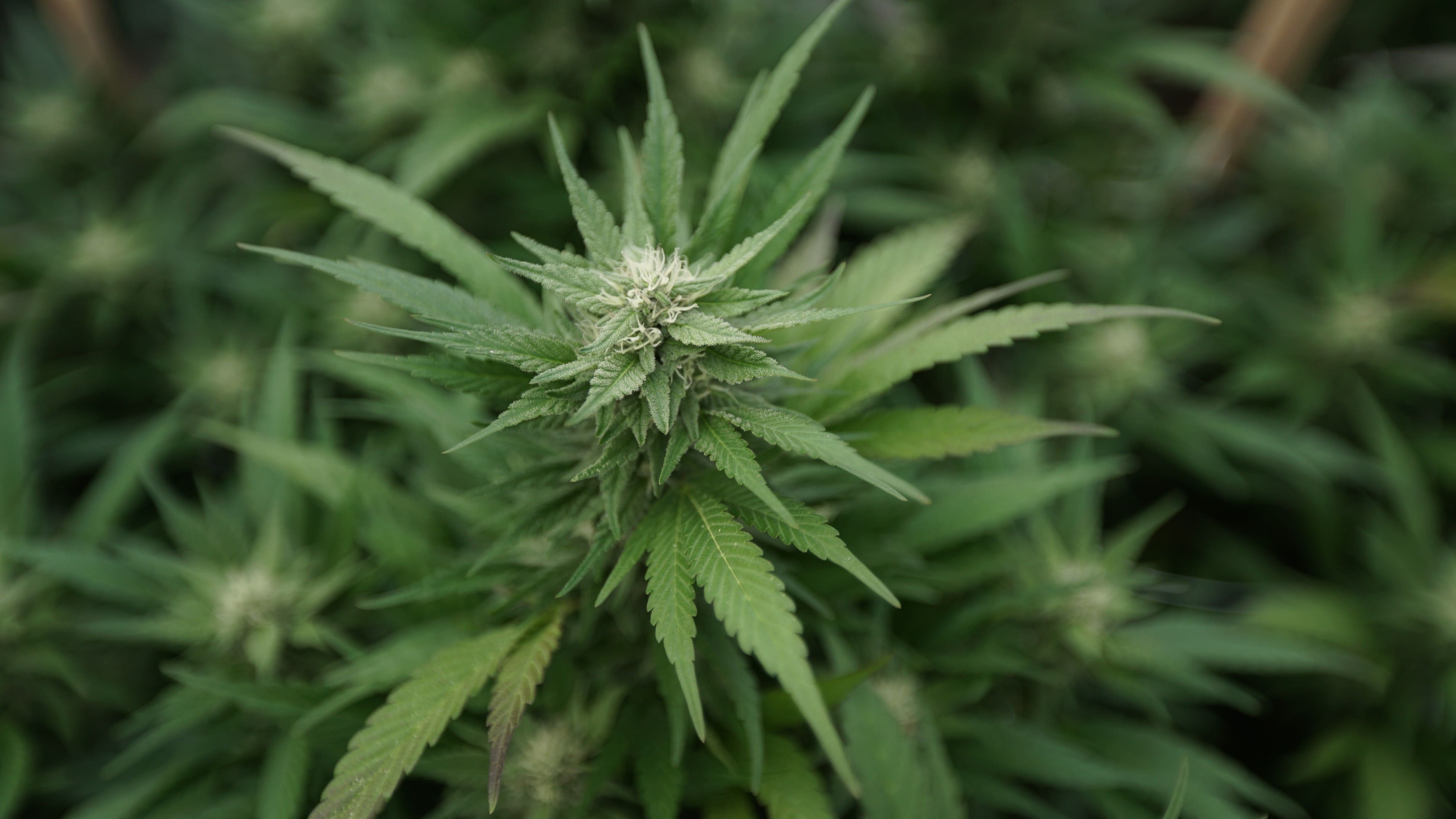
A prospective ballot measure that would legalize adult-use marijuana in South Dakota and allow medical dispensaries to serve anyone 21 and older received a final ballot explanation from the state’s attorney general on Thursday—but the chief backer of the proposal says he has no plans to collect signatures or campaign for the change.
The measure, sponsored by Rapid City resident Emmett Reistroffer, would allow “individuals 21 of age or older to possess, grow, ingest, and distribute marijuana or marijuana paraphernalia,” according to Attorney General Marty Jackley’s (R) final explanation. Adults could possess up to three ounces of marijuana and grow up to six plants, with no more than 12 plants per household.
Driving under the influence of marijuana would remain illegal, as would cannabis-related activity by people under 21.
@SDAttorneyGen's Office releases final ballot explanation for draft initiated measure that would legalize recreational marijuana and create dual-use licenses for medical marijuana dispensaries. The AG's Office takes no position on any such proposal. https://t.co/x43brsqhKD pic.twitter.com/LQWvLGrCCW
— SD Attorney General (@SDAttorneyGen) December 7, 2023
Sales under the proposal would happen through existing medical marijuana dispensaries, which would be able to obtain dual-use licenses through the state Department of Health. “Local governments may not prohibit dual-use licenses,” the explanation says, “but may cap the number available within their jurisdictions.”
Employers and property owners could still restrict marijuana use under the measure.
An attached copy of the would-be ballot initiative specifies that in addition to the three allowable ounces of marijuana flower, adults could possess up to 24 grams of concentrated cannabis as well as other non-concentrated cannabis products containing less than 2,400 milligrams of THC.
To qualify the measure for the 2024 general election, organizers would need to gather at least 17,509 signatures from registered voters by a deadline in May. If placed on the ballot, it would require a simple majority to pass.
Jackley’s office issued a draft explanation for the proposal last month. Since then, his office received a total of six comments over its 10-day comment period, according to a press release.
But reached by Marijuana Moment on Friday, Reistroffer, who submitted the proposal, says he currently has no plans to gather signatures or campaign for the measure next year, adding that he doesn’t want to compete with a separate legalization proposal already gathering signatures in an effort to make the 2024 ballot.
“I’m currently not planning a campaign,” Reistroffer said by email, “I simply drafted and filed the language to ensure a sensible option was available.”
“I prepared what I think is the best option,” he added. “There’s another initiative moving forward, so mine is on hold at this time.”
Organizers behind a separate legalization measure, meanwhile, are already gathering voter signatures in an effort to make the 2024 ballot. That proposal, backed by South Dakotans for Better Marijuana Laws (SDBML) received the attorney general’s final summary in August. It says adults 21 and older could “distribute” cannabis, though it was revised from its initial form to omit the word “sell.”
Some, including Jackley’s office, feel that proposal’s language is unclear.
“Judicial or legislative clarification of this measure may be necessary,” the attorney general’s summary of that measure said.
In a statement to Marijuana Moment last month, Reistroffer, who is the director of operations at the medical marijuana company Genesis Farms, detailed some of the differences between his new proposal and the prospective SDBML legalization measure.
While his plan includes licensing and regulation through the Department of Health, Reistroffer said at the time, the SDBML proposal is silent on those matters. The state also wouldn’t get any taxes under the competing plan, while Reistroffer’s would provide a path to legal sales that would be subject to state sales tax.
In general, the key difference is that the SDBML plan focuses on noncommercial legalization, Reistroffer said, while his plan’s core focus is legal sales and regulations.
“If South Dakotans want to make cannabis legal for adult use, there needs to be regulations and licensing in place,” he said. “I’m optimistic that a majority of South Dakotans support legalization, and it makes sense for adult use to build off the current regulatory program in place for medical cannabis.”
Matthew Schweich, the backer of SDBML’s proposed initiative, was not immediately available for comment on Friday.
Even if Reistroffer doesn’t mount a campaign to qualify his proposal for next year’s ballot, it’s possible supporters could mount a later signature-gathering campaign to put the measure before voters later on.
As supporters mount another effort, opponents of legalization have filed two other proposed ballot measures proposals to tighten drug laws in the state. One would repeal the state’s medical marijuana law, while the other would keep federally banned substances from ever being legalized by voters.
The state attorney general finalized the ballot explanation for the medical marijuana repeal measure in August. But SDBML recently said the repeal measure should be thrown out due to an alleged error in how the proposal was filed, failing to include a full list of the state statutes it would seek to undo.
South Dakota voters rejected an adult-use cannabis legalization ballot measure last year after approving an earlier version in 2020 that was ultimately invalidated by the state Supreme Court.
Ahead of last year’s election, a poll found that 51 percent of South Dakotans planned to vote against the legalization measure, while 40 percent said they’d be supporting it and 10 percent remained undecided. That was the third poll in a row showing the legalization measure behind.
After voters approved medical cannabis legalization in 2020, Gov. Kristi Noem (R) tried to get the legislature to approve a bill to delay implementation for an additional year. But while it cleared the House, negotiators were unable to reach an agreement with the Senate in conference, dealing a defeat to the governor.
In response, Noem’s office started exploring a compromise, with one proposal that came out of her administration to decriminalize possession of up to one ounce of cannabis, limit the number of plants that patients could cultivate to three and prohibit people under 21 from qualifying for medical marijuana.
In the 2022 legislative session, the House rejected a legalization bill that the Senate had passed, effectively leaving it up to activists to get on the ballot again.
A Marijuana Interim Study Committee, headed by legislative leaders, was established to explore cannabis policy reform, and the panel in November 2021 recommended that the legislature take up legalization. The House-defeated legislation was one of the direct products of that recommendation.
Currently more than 11,500 people in South Dakota hold medical marijuana cards—nearly double the 6,000 cardholders that state officials expected to enroll in the program by 2024.
Photo courtesy of Chris Wallis // Side Pocket Images.




